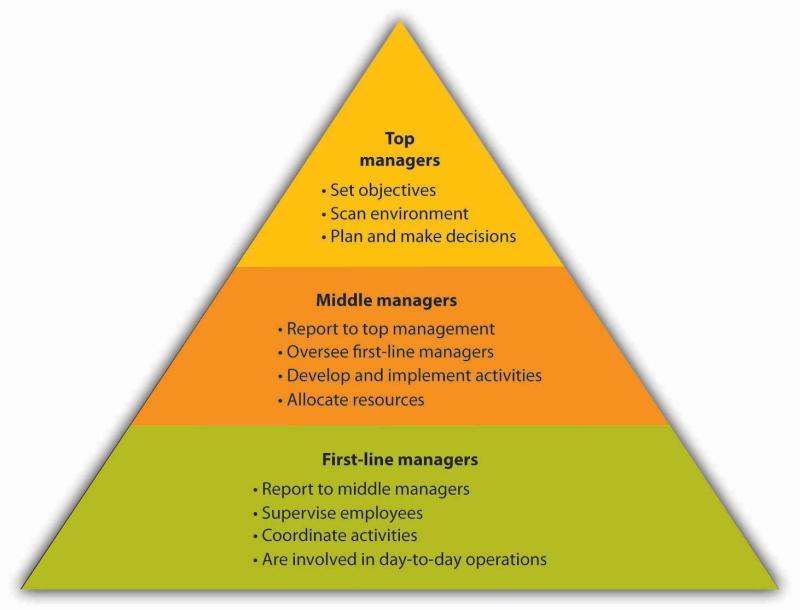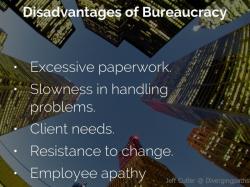What is the first level of Management?
The first level of management in an organization is typically referred to as "Supervisory" or "Front-line Management." This level is considered the entry point to organizational leadership and is directly involved in overseeing the day-to-day operations and activities of a specific team, department, or work unit. The first level of management plays a crucial role in bridging the gap between the organizational goals and the actual work being performed.
Key characteristics and responsibilities of the first level of management include:
Direct Supervision:
- First-level managers are directly responsible for supervising and overseeing the work of non-managerial employees. They ensure that tasks are completed efficiently and in accordance with organizational policies and procedures.
Communication Channel:
- They serve as a vital communication link between higher management and front-line employees. Information from top management is communicated downward, and feedback or issues from employees are communicated upward through these managers.
Employee Development:
- First-level managers are often involved in the training and development of their team members. They help employees acquire the necessary skills and knowledge to perform their roles effectively.
Performance Management:
- They are responsible for assessing the performance of individual team members. This includes providing feedback, conducting performance reviews, and addressing any performance-related issues.
Resource Allocation:
- First-level managers are involved in resource allocation within their teams, including assigning tasks, managing work schedules, and ensuring that resources such as equipment and materials are available and used efficiently.
Problem Solving:
- They handle day-to-day challenges and problem-solving within their teams. This may involve resolving conflicts, addressing operational issues, and making decisions that impact the immediate work environment.
Motivation and Team Building:
- First-level managers play a role in motivating and building a cohesive team. They create a positive work environment, foster teamwork, and address any issues that may affect team dynamics.
Implementation of Policies:
- They are responsible for implementing organizational policies and procedures at the operational level. This ensures consistency and compliance with the broader goals and values of the organization.
Customer Interface:
- In roles where the team interacts directly with customers, first-level managers may be responsible for ensuring a high level of customer satisfaction by overseeing the quality of products or services.
Overall, the first level of management is critical for translating organizational strategies into actionable tasks and ensuring the smooth functioning of day-to-day operations. Individuals in these roles often have titles such as team leader, supervisor, or front-line manager, and their effectiveness directly influences the success of the larger organization.
What constitutes the first level of management in organizational structures?
The first level of management in organizational structures is also known as front-line management, supervisory management, or first-line leadership. It is the level of management that is closest to the employees and is responsible for the day-to-day operations of a department or team.
First-line managers typically supervise a small group of employees and are responsible for tasks such as:
- Assigning tasks and delegating work
- Providing training and support
- Monitoring employee performance
- Coaching and developing employees
- Providing feedback and recognition
- Resolving employee conflicts
- Ensuring that work is completed on time and to a high standard
What are the roles and responsibilities of individuals at the first level of management?
The specific roles and responsibilities of first-line managers will vary depending on the industry, the organization, and the specific department or team that they supervise. However, some common roles and responsibilities include:
- Planning and organizing work: First-line managers are responsible for planning and organizing the work of their team to ensure that it is completed efficiently and effectively. This involves setting goals, developing work schedules, and assigning tasks to team members.
- Leading and motivating employees: First-line managers are responsible for leading and motivating their team members to achieve their goals. This involves providing clear and concise instructions, delegating work effectively, and providing support and encouragement.
- Monitoring and evaluating performance: First-line managers are responsible for monitoring and evaluating the performance of their team members. This involves providing feedback, coaching, and development opportunities.
- Communicating with stakeholders: First-line managers are responsible for communicating with a variety of stakeholders, such as their team members, other managers, and customers. This involves providing regular updates on progress, resolving issues, and building relationships.
How does the first level of management contribute to overall organizational success?
First-line managers play a critical role in the overall success of an organization. They are the ones who are responsible for the day-to-day operations of the organization and for ensuring that employees are productive and engaged.
When first-line managers are effective, they can help organizations to:
- Improve employee morale and engagement
- Increase productivity and efficiency
- Reduce costs
- Improve customer service
- Create a positive and supportive work environment
First-line managers are also responsible for developing and implementing the organization's vision and strategy at the team level. By ensuring that their team is aligned with the organization's goals and objectives, first-line managers can help the organization to achieve its strategic objectives.
In short, first-line managers play a vital role in the success of any organization. By effectively leading and managing their teams, they can help organizations to achieve their goals and objectives.













